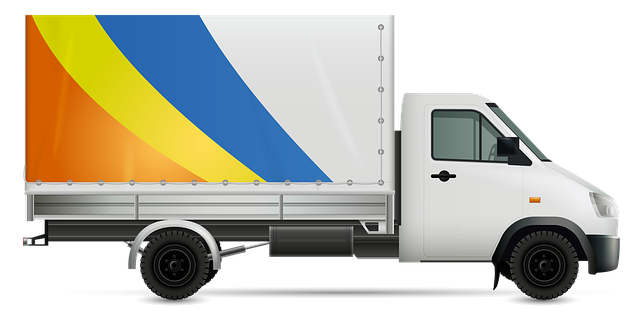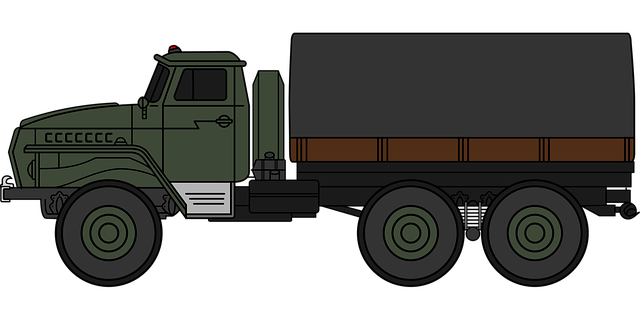For new trucking operations, prioritizing safety practices like regular maintenance and driver training is a strategic approach to lowering trucking insurance costs. Implementing robust safety measures can lead to significant discounts on startup trucking coverage, including liability insurance startups and cargo coverage. These practices reduce claim probabilities, enhance operational efficiency, and ultimately benefit small business truck insurance providers by lowering physical damage insurance costs. By prioritizing safety and understanding unique risks, new businesses can secure comprehensive new fleet insurance at affordable rates, fostering growth and protection against potential liabilities.
In the competitive world of trucking, minimizing operational costs is key for new businesses. One significant expense that often burdens startups is trucking insurance. However, adopting robust safety practices can substantially lower these insurance costs. This article explores the intricate relationship between safety measures and insurance rates, offering insights into essential strategies for new fleet owners to secure affordable coverage, including liability and cargo protection. By understanding these tactics, small business truck operators can navigate the market with confidence.
Understanding the Impact of Safety Practices on Insurance Costs

For new operators in the trucking industry, understanding the relationship between safety practices and insurance costs is paramount to achieving affordable trucking insurance. Safety practices serve as a critical factor in determining risk levels for startup trucking coverage and new fleet insurance. Companies with robust safety measures in place often find themselves eligible for lower premiums on liability insurance startups and cargo coverage new fleets. This is because insurers perceive such businesses as less likely to file claims, thereby reducing the overall cost of physical damage insurance.
By implementing best practices like regular vehicle maintenance, driver training programs, and adherence to safety regulations, new operators can significantly impact their insurance affordability. These measures not only enhance operational efficiency but also contribute to a safer trucking industry, ultimately reflecting positively on insurance costs for small business truck insurance providers.
Essential Safety Measures for New Trucking Operations

New trucking operations face a unique challenge when it comes to managing insurance costs alongside establishing their business. Implementing robust safety practices is a strategic approach to mitigating risks and, consequently, lowering insurance premiums for new businesses in the trucking industry. By prioritizing essential safety measures, startups can demonstrate their commitment to operational excellence and financial responsibility.
Key elements of new fleet insurance include comprehensive liability coverage to protect against potential cargo damage or loss, as well as physical damage insurance to safeguard vehicles from accidents or natural disasters. Additionally, implementing robust driver training programs, regular vehicle maintenance checks, and adherence to strict safety protocols can significantly enhance the overall safety profile of a trucking company. These measures not only ensure the well-being of drivers and cargo but also foster a culture of responsibility, which insurers recognize and reward through competitive rates for small business truck insurance.
Strategies to Secure Affordable Insurance for Startups

Starting a trucking business can be an exciting yet challenging endeavor, especially when it comes to navigating the complex world of insurance. New businesses often face the daunting task of securing affordable coverage that meets their unique needs. Here are some effective strategies to help new operators find the best rates for their trucking insurance.
One key step is to understand the specific requirements and risks associated with your fleet. Different types of startup trucking coverage exist, including liability insurance, which protects against claims related to accidents or damage to cargo, and physical damage insurance, covering any harm to your vehicles. Customizing your policy by choosing the right limits and deductibles can significantly impact costs. Additionally, many insurers offer discounts for safe driving records, multiple vehicle policies, or joining certain trade associations. Comparisons between different providers and their offerings are essential, ensuring you get the most value for your money while maintaining adequate protection.
How Liability and Cargo Coverage Can Benefit New Fleets

For new operators in the trucking industry, understanding the importance of comprehensive insurance is paramount to their business’s success and longevity. Among the various coverage options, liability and cargo coverage stand out as powerful tools to protect young fleets from financial peril. These types of insurance are not just obligations but strategic investments designed to safeguard against potential risks unique to the trucking sector.
Liability insurance, for instance, shields new businesses from claims related to property damage or personal injury caused by their vehicles during operations. This is crucial as startups often have limited historical data and experience to predict and mitigate risks effectively. Conversely, cargo coverage ensures that the value of goods being transported is protected in case of loss or damage, which is especially relevant for new fleets managing diverse cargo types and routes. Together with physical damage insurance, these coverages contribute significantly to affordable trucking insurance for new businesses by offering a comprehensive risk management solution, enabling operators to focus on growth and efficiency rather than potential financial burdens.
Implementing robust safety practices not only enhances the operational efficiency of new trucking businesses but also plays a pivotal role in reducing their insurance costs. By adopting essential measures like regular vehicle maintenance, driver training programs, and efficient route planning, startups can significantly lower their risk profile. This, in turn, leads to more affordable liability and cargo coverage, making it easier for small business truck operators to navigate the market with financial confidence. Investing in safety is not just a responsible step but also a strategic one that ensures long-term sustainability and success in the trucking industry.
